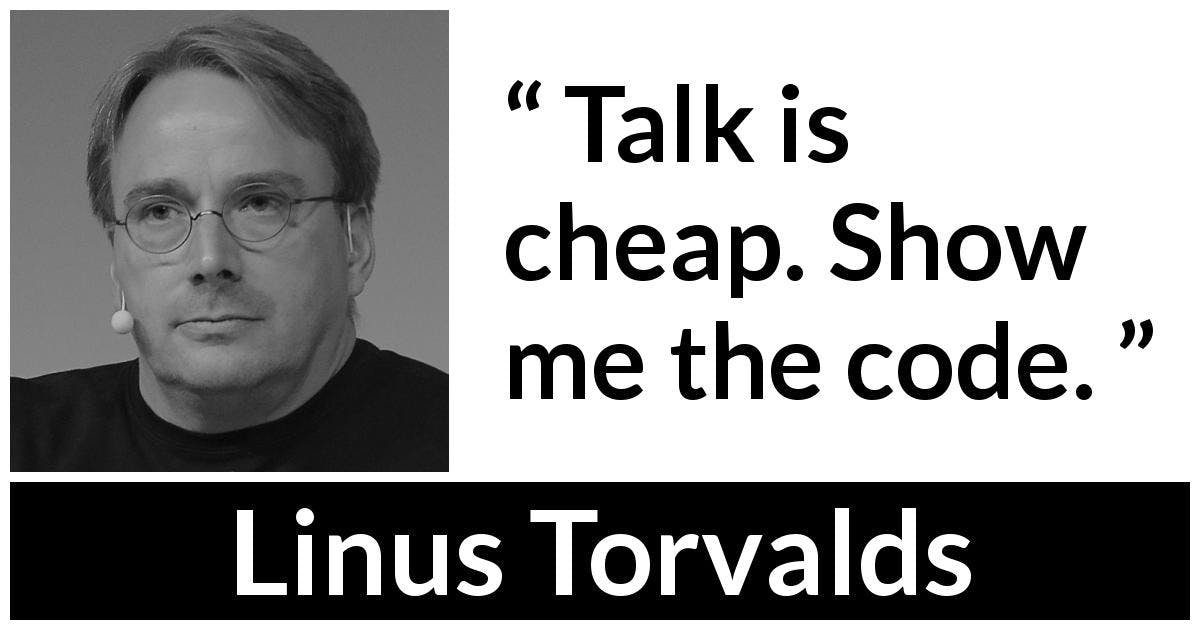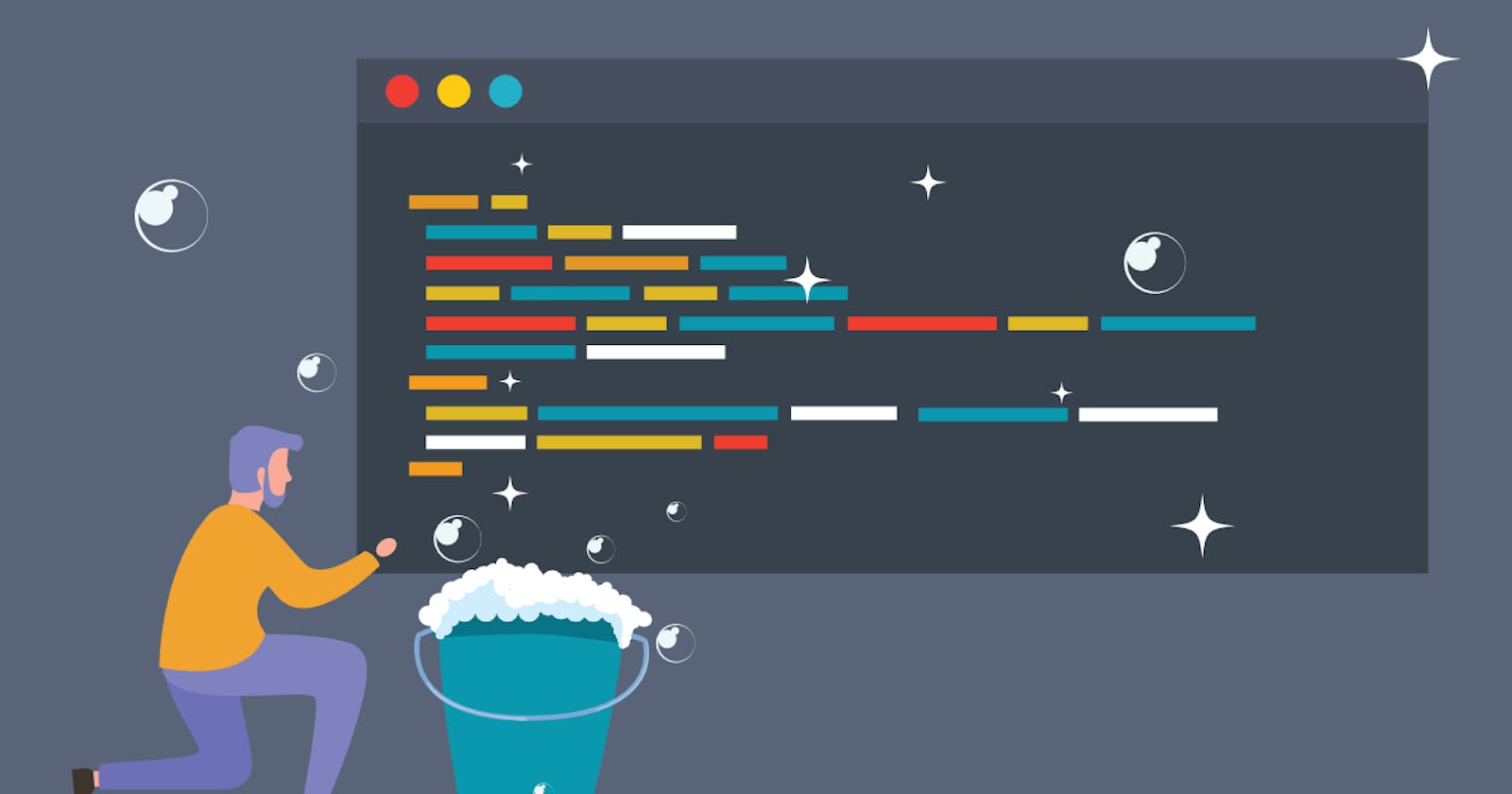How to Write Clean Code (Ep-01)
Write Clean Code with Functional Programming's Wisdom of Experience
As software developers, we are constantly faced with the challenge of how to write clean code. We are tasked with creating code that is maintainable, bug-free, and easy to read. But what does that actually mean? In this series of blog posts, we will explore what it means to write clean code and how we can go about doing it. We will discuss principles and practices that will help you write code that is not only clean but also efficient and scalable. So whether you’re a beginner or a seasoned pro, join us on this journey to learn how to write clean code.
Clean Code with Functional Programming
Functional programming is a programming paradigm that emphasizes the evaluation of functions rather than the execution of commands. It is a declarative programming style, meaning that code is written as a set of instructions for the computer to follow, and it is often used to create more concise and readable code.
In functional programming, there is a clear separation between the declaration of functions and the evaluation of those functions. This makes it easier to reason about code, and it also allows for more flexibility in how functions are evaluated. For example, a function can be easily composed with other functions, or it can be evaluated lazily (meaning that its result is not calculated until it is needed).
Functional programming languages typically make use of higher-order functions, which are functions that take other functions as arguments or return them as results. Higher-order functions allow for many powerful abstractions that would be difficult or impossible to express in imperative languages.
There are many benefits to writing clean code with functional programming, but some of the most important ones are:
1) Functional code is easier to reason about – Since functional code is declarative in nature, it is often easier to understand what a piece of code does just by looking at it. This can be especially helpful when dealing with complex algorithms or data structures. 2) Functional code is more concise – Because functional code relies heavily on composition, it often eliminates the need for unnecessary boilerplate or extra variables. This can lead
Functional Programming and Declarative Programming
In software engineering, clean code is a term used to describe code that is easy to read and understand. Clean code is well-written, well-documented, and maintainable.
There are many different approaches to writing clean code, but two of the most popular are functional programming and declarative programming.

Functional programming is a style of coding that emphasizes the use of functions rather than objects. This can make code more concise and easier to read. Declarative programming is a style of coding that emphasizes what the code should do rather than how it should do it. This can make code more expressive and easier to understand.
Both functional programming and declarative programming have their own advantages and disadvantages, so it's important to choose the right approach for each situation. In general, functional programming is better suited for simple tasks while declarative programming is better suited for complex tasks.
What's the problem with Imperative Programming?
In imperative programming, the developer is responsible for dictating how the program will execute each step in the solution. This can lead to code that is difficult to read and understand, as well as code that is error-prone and hard to maintain.
One of the main problems with imperative programming is that it can be difficult to see the "big picture" of what the code is doing. This can make it hard to find and fix errors, or to make changes to the code without introducing new errors. It can also be difficult to reuse code written in an imperative style, since it may not be clear how the code should be used in other contexts.
Solution: Declarative Programming
Declarative programming is a programming paradigm that represents the logic of a computation without describing its control flow.
In declarative programming, programs are constructed by combining building blocks. These building blocks can be high-level abstractions or lower-level primitives. The key idea is that the programmer does not need to specify how the building blocks are combined; the combination process is automated by the language or system.
One advantage of declarative programming is that it can make code more modular and easier to understand. For example, consider a program that calculates the average of a list of numbers. In an imperative style, this program might be written as follows:
var sum = 0; var count = 0; for (var i = 0; i < numbers.length; i++) { sum += numbers[i]; count++; } var average = sum / count; console.log("The average is " + average);
DECLARATIVE PROGRAMMING: With declarative programming, the same program could be written like this:
var average = numbers.reduce((sum, n) => sum + n) / numbers.length; console.log("The average is " + average);
As you can see, the declarative version is shorter and easier to read. It is also more modular because the calculation of the sum and the count are separate from the calculation of the average
Practical Example
In this section, we'll take a look at a practical example of how to write clean code. We'll use the following Java code as our starting point:
public class Foo {
public static void main(String[] args) {
int x = 10;
int y = 20;
System.out.println(x + y);
}
}
As you can see, this code is fairly simple. However, it's not very clean.
Did you find this article valuable? The second episode is coming...
❤️ Enjoy this article?
Have some ideas? Please use this form to share your feedback, ideas, and more.
Anything else? Hit reply to send me a message. My inbox is always open. 🖤
Your next read → 🔥 Best Apps For Web Developers

